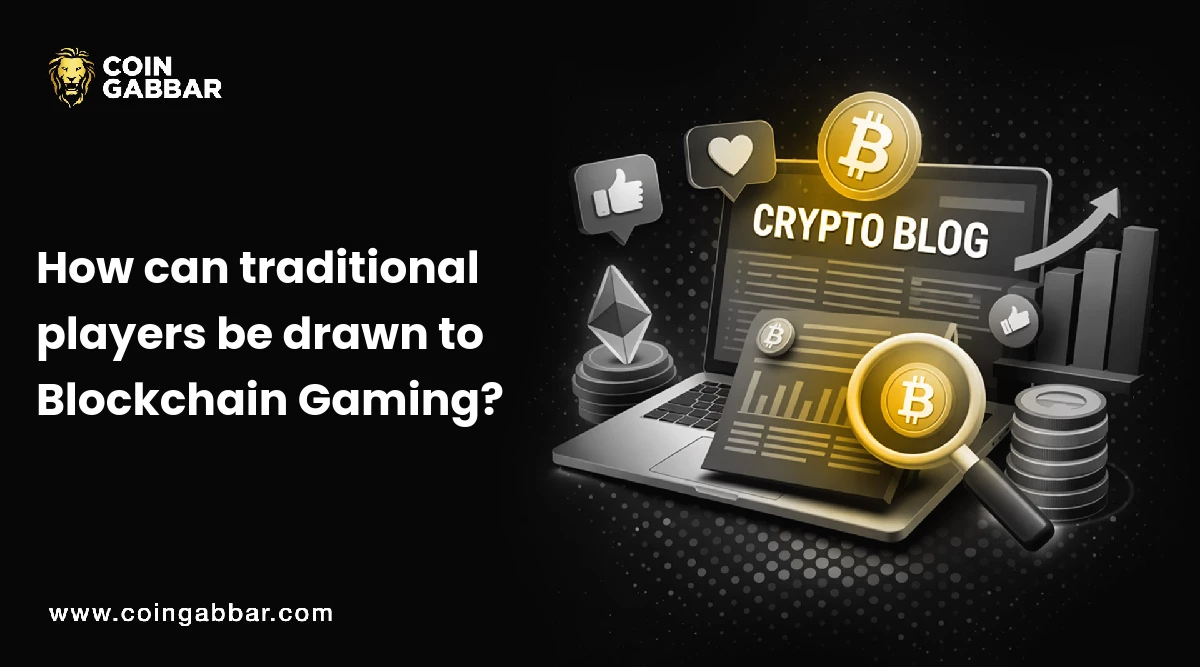
The stigma surrounding blockchain games can be eliminated, and traditional gamers who have previously been wary of Play-to-Earn economic models can be won over. This is possible with well-designed games that combine a high-quality gaming experience with the possibility to link the in-game economy to the real economy.
Back in the 1990s, with the emergence of computers and the internet at the turn of the century, traditional video games became popular, attracting billions of people worldwide via PCs, consoles, mobile phones, and other platforms. Web 2.0 and traditional gaming have long been forms of entertainment worldwide.
As we move forward, blockchain has found its way into the gaming industry. The hype is shifting from Pay-to-Play to Play-to-Earn. Games that use blockchain technology have swiftly captured the interest of the general public outside of the gaming community due to their capacity to improve one's financial situation via the Play and Earn (P2E) paradigm. However, the majority of the traditional gaming community's reaction is mixed and unclear due to some barriers.
After the pandemic, the blockchain gaming sector has seen tremendous growth. Along with a growing player base, there are huge investments pouring into it. GameFi is also changing the perspective of gaming among users, and it has over 15,000 projects as of now. Dodging the bear market in the past few months, it outshined others.
The crash of Terra Luna in May, which was comparable to the 2008 financial crisis, affected the crypto space severely. DeFi, NFTs, and the bulk of cryptocurrencies, as well as organizations such as Three Arrows Capital (3AC), Voyager, and Celsius, were all hit by this crisis. However, according to a report, GameFi, or blockchain gaming, was the least affected during this market turmoil.
It was observed that blockchain gaming and Metaverse applications showed either negligible downsides or even positive indicators of development within the same period. Transaction counts for DeFi and NFTs fell the most, at 14.8% and 12.2%, respectively, but grew for blockchain gaming projects by 9.51%.
It is clear that GameFi stood out from the rest in the crypto sector owing to its combination of fun with profit. Furthermore, institutional investments are flooding in like there's no tomorrow. But what distinguishes it from traditional gaming? And how can proactive traditional players be attracted to this industry? Let's see
Play-to-Earn: As compared to traditional gaming, where players play to win, GameFi follows the Play-to-Earn paradigm. These games reward players with assets ( mostly cryptocurrencies and NFTs).
Monetization of in-game assets: Your in-game assets will have a monetary value in the real world. Assets can range from a suit of armor to a plot of virtual land, which is tokenized on the blockchain. In traditional games, your in-game assets are trapped inside the game only, i.e., they don’t have any monetary value or real-life use cases. For example, In PUBG you cannot utilize gun skins, clothes or other items bought in your life.
P2P transactions: Blockchain technology is being integrated into gaming companies' systems to ease peer-to-peer transactions and allow gamers to exchange virtual goods in-game. This paradigm change is being embraced by businesses and console makers. Microsoft has also disclosed ambitions to integrate blockchain into the Xbox.
Assets ownership: The assets are owned by the users rather than the gaming companies. It implies that users can trade and stake their assets freely and easily.
The combination of all of these factors is what distinguishes blockchain games from traditional mainstream games. However, several factors are standing in the way of drawing other traditional players to blockchain gaming.
High entry barrier: Many criticize GameFi due to its high entry barrier cost. As Gamers need some fat money to play these blockchain games. The majority of players utilise the money to purchase in-game items.
Game shutdowns: Blockchain gaming has been treated with considerable suspicion in the past, and not without cause. Many P2E games are harmed by players who frequently cash out and remove value from the game while making no contributions to the ecosystem.
Developers and project companies need to understand that they must build a safe and secure environment in which players are confident in selling and buying assets. There are doubts regarding the system, the virtual gaming assets must be secured to keep the hacker party at bay. There should be no more game shutdowns or rule changes without the participation of gamers on the blockchain.
The entry barrier should be reduced so that more people are able to participate in blockchain-based gaming. With several benefits over the traditional ones, it has become the major factor hindering others from joining this new form of gaming. Additionally, other features like profile interoperability and control over intangible assets should be provided without any technological disruption.
Putting a monetary value on intangibles is also a topic of concern. As consumers place a value on intangible things, we will see real money spent on virtual games. Currently, sectors entering this phase are vulnerable to disruption. If technology allows gamers and creators to collaborate more closely, this will permanently revolutionize gaming. Providing creators with a free hand to design unique collections is just one of the ways blockchain might alter the game business.
Lastly, Well-designed games that combine a high-quality gaming experience with the potential to tie the in-game economy to the real economy can dispel the stigma surrounding blockchain games and attract traditional gamers who were previously suspicious of Play-to-Earn economic models.

Sourabh Agarwal is one of the co-founders of Coin Gabbar and a CA by profession. Besides being a crypto geek, Sourabh speaks the language called Finance. He contributes to #TeamGabbar by writing blogs on investment, finance, cryptocurrency, and the future of blockchain.
Sourabh is an explorer. When not writing, he can be found wandering through nature or journaling at a coffee shop. You can connect with Sourabh on Twitter and LinkedIn at (user name) or read out his blogs on (blog page link)